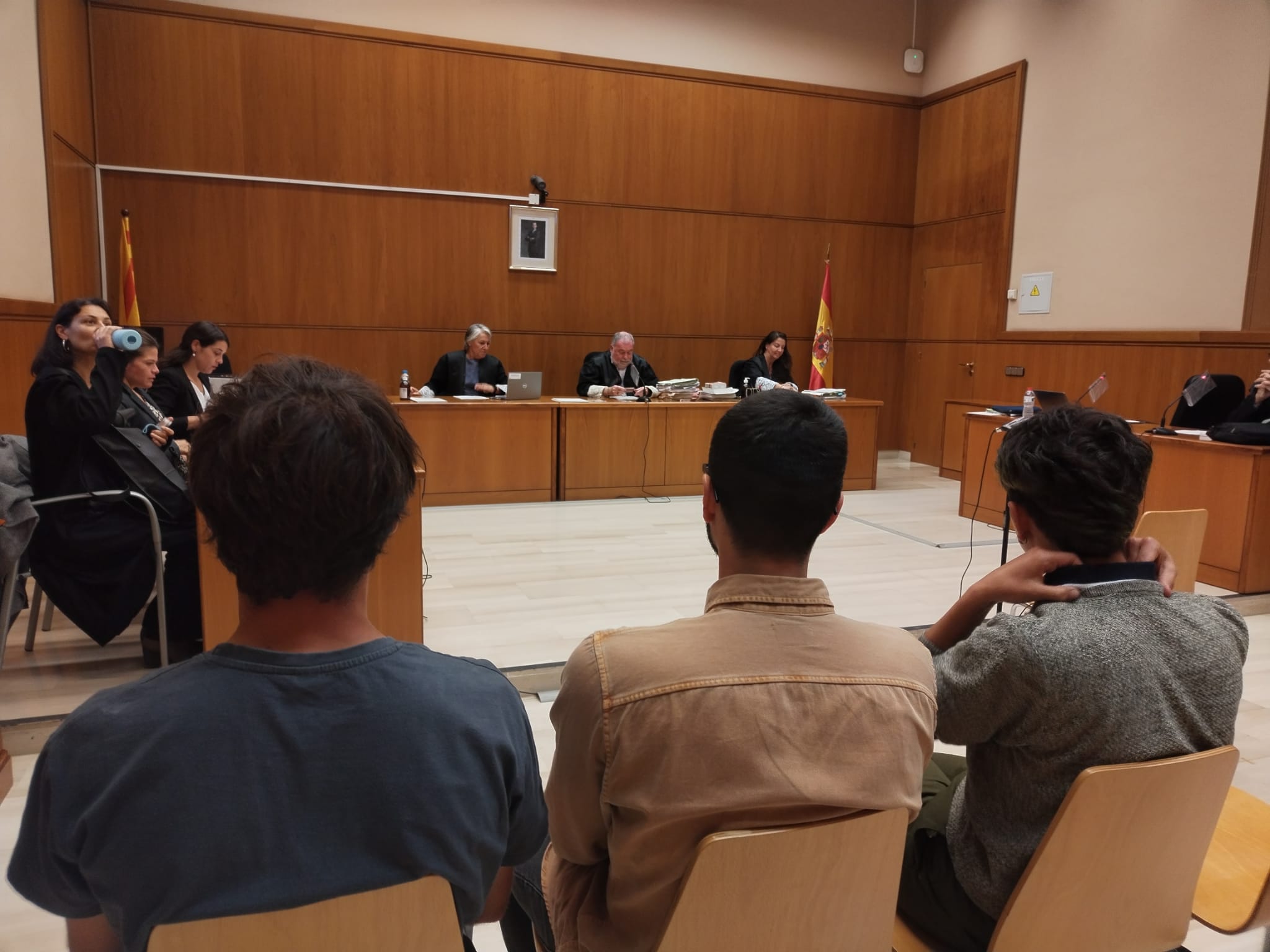A resounding acquittal. A three-judge criminal chamber at the Barcelona Audience has acquitted Dren, who spent a month in pre-trial detention for having participated in a protest against the convictions of the Catalan pro-independence leaders in October 2019, for whom the prosecutor was seeking a 4-year, 8-month prison sentence for offences of public disorder and an attack on a police officer. Dren refused to accept a plea-bargaining deal under which they would have been found guilty in return for a reduced sentence. The other two defendants placed in the same case - although none of them knew each other beforehand - did accept the deal: Joan accepted a sentence of 2 years and 4 months in prison, compared to the initial 7 years and 9 months that the prosecutor sought; and Marc accepted 9 months in prison, reduced from 2 years and 4 months. Norma Pedemonte, lawyer of Dren (the defendant has transitioned to being a non-binary person and changed their name from Andrea to Dren), asked for her client's acquittal, and that is what Barcelona Audience has decided, in a resolution that was highly critical of the public prosecutors and has become known this Friday, and to which ElNacional.cat has had access.
In addition to the acquittal of Dren, the court suspended the execution of the sentences of Joan and Marc, on the condition that they do not commit any crimes for the next 2 years. None of the three young people knew each other, and the court questions the legality of their joint prosecution without having any common criminal link, as stipulated by law.
A police officer who was not impartial
The demonstration for which all three were arrested took place on October 15th, 2019, outside the Spanish government's Barcelona delegation, on the city's Carrer Mallorca, where, according to the prosecutor's account, Joan and Marc threw objects at the police and then, when they were arrested, resisted the arresting officers and caused minor injuries to them.
The claimed the same of Dren, but the third defendent denied these actions, but rather said that they went to the demonstration, and after being in the front line were arrested during a police baton charge. The case boiled down to the version of the protester versus that of a single Mossos d'Esquadra police officer who arrested Dren and assured, in the trial, that the defendent went to look for stones, returned to the same place and threw them. There was no video or witness produced to confirm these events; only a second officer, who arrested Dren.
The court, presided over by judge Juli Solaz, considers that the police officer's version is not sufficient to convict the young student. "In this case, this is not an impartial witness, unrelated to the facts, but rather the officer has postulated himself as the victim of the whole incident", said judge Solaz. The Mosso affirmed that he received impacts from the objects, and a slight wound to the knee while arresting Dren.
The ruling of the three Barcelona judges notes Spanish Supreme Court jurisprudence that the testimony of the victim will be taken into account when in intimate spaces, such as the case of domestic violence, but assaults in free and open spaces must be ratified by other evidence and witnesses, and in Dren's case, accused by the police officer, such evidence has not been provided and the court concludes that there is insufficient evidence to disprove his presumption of innocence.
Four years of suffering
The legal aid group Alerta Solidària, which has defended the majority of independence activists who have been prosecuted, made a statement in which it congratulates Dren on their acquittal, but regrets that the defendant "will not be able to get back the time spent in prison and the four years" of suffering under the "threats of having to go back inside".
Reprimand to the investigating judge
In the sentence, the court - made up of judges Maria Josep Feliu, Patrícia Martínez and Juli Solaz, president and spokesperson - also gave the investigating judge a sterm reprimand - in this case, the head of Court number of Barcelona - because, contrary to the provisions of Spanish law, this judge prosecuted the case against the three young students as a joint case, when their actions were separate and there was no element of connection. "It is legally dubious," stated the Barcelona Audience resolution, in addition to the fact that it caused "unnecessary delays and unnecessary complexity."

